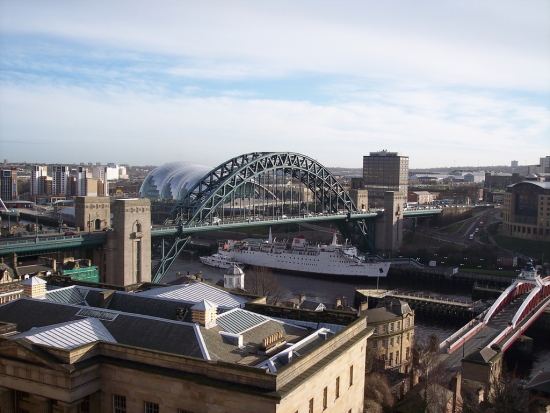After years of empty and mothballed floorspace, Newcastle has recorded its highest office take-up since the start of the recession.

Although overall re-lets for Tyneside are down at just 178,071sq ft — lower than the average quarterly take-up rate for the last two years — Newcastle city centre continues to out-perform with a record July to September increase of 80 per cent, according to the Offices Group of chartered surveyors.
Figures for the third quarter show that 102,747sq ft of the city’s empty blocks were re-occupied compared with 56,949sq ft for the previous three months.
“The improvement in the economy and a general air of confidence has translated into more enquiries and most importantly more office lettings,” said Tim Evans, of Knight Frank. “We are confident this improvement will be sustained.”
The biggest single deal of the summer, and the largest in the city centre for two years, was PriceWaterhouseCoopers’ occupancy of 23,600sq ft at Newcastle’s Central Square South. It was, explained Tony Hordon, a senior director at property service advisors DTZ, a significant team effort.
“Accommodating PWC required the relocation of DTZ itself, Qubic Tax and the Arts Council for England. To orchestrate and deliver these transactions, required a team effort and an appetite for success,” said Hordon. “PriceWaterhouseCoopers has acquired one of the best office buildings in Newcastle, which we hope provides the catalyst and foundations for continued activity and movement in the occupational markets.
“There is no doubt there is more activity and confidence in the market which can only improve as large corporates such as PWC are seen to be making moves of this scale,” he added.
Another reason for the city’s revival, claims Bill Lynn of Newcastle-based property consultants and surveyors ES Group, is its image. “If Newcastle wants to be seen as a serious contender, we need to forge a strong identity and work hard at our statistics and demographics. This is the only way to prove that we are comparable with Manchester, Leeds and the Sheffield city region,” said Lynn.
“We need to work very hard at building a stronger statistical and demographic profile than we have at present. Newcastle doesn’t have a huge population, but is generally perceived as being bigger than it is because of its adjoining areas.”
There are also “regional dangers” in persuading companies to relocate. According to Lynn: “The phrase ‘North-East’ means little to many outside the region. Newcastle is the only name within the North-East that means something on an international playing field, but the disparate views voiced by the various local authorities mean this is never going to be acceptable to everyone.”
Being a member of the Newcastle Gateshead Initiative will never be enough, he added. “We need to acknowledge that, if you’re looking for a regional or sub-regional office location in the North-East, you’re bound to look at Newcastle. In short, it has all the credentials to be the regional capital, and many of us would argue that the region’s branding should be built around this to benefit of the whole area.”
Previous Post
Elephant and Castle Shopping Centre sold for Development